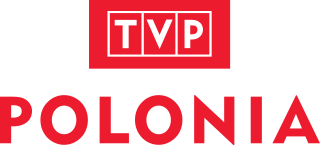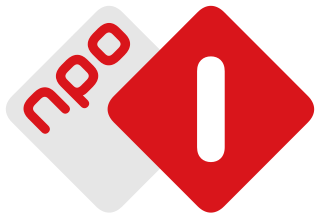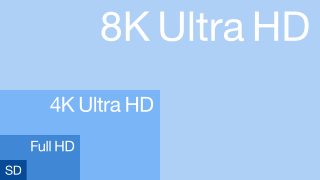
Digital Video Broadcasting (DVB) is a set of international open standards for digital television. DVB standards are maintained by the DVB Project, an international industry consortium, and are published by a Joint Technical Committee (JTC) of the European Telecommunications Standards Institute (ETSI), European Committee for Electrotechnical Standardization (CENELEC) and European Broadcasting Union (EBU).
DVB-T, short for Digital Video Broadcasting – Terrestrial, is the DVB European-based consortium standard for the broadcast transmission of digital terrestrial television that was first published in 1997 and first broadcast in Singapore in February, 1998. This system transmits compressed digital audio, digital video and other data in an MPEG transport stream, using coded orthogonal frequency-division multiplexing modulation. It is also the format widely used worldwide for Electronic News Gathering for transmission of video and audio from a mobile newsgathering vehicle to a central receive point. It is also used in the US by Amateur television operators.
Digital terrestrial television is a technology for terrestrial television where television stations broadcast television content in a digital format. DTTV is a major technological advance over analog television, and has largely replaced analog television broadcast, which had been in common use since the middle of the 20th century. Test broadcasts began in 1998 with the changeover to DTTV, also known as the Analog Switchoff (ASO) or Digital Switchover (DSO), which began in 2006 and is now complete in many countries. The advantages of digital terrestrial television are similar to those obtained by digitizing platforms such as cable TV, satellite, and telecommunications: more efficient use of radio spectrum bandwidth, provision of more television channels than analog, better quality images, and potentially lower operating costs for broadcasters.
Free-to-air (FTA) services are television (TV) and radio services broadcast in unencrypted form, allowing any person with the appropriate receiving equipment to receive the signal and view or listen to the content without requiring a subscription, other ongoing cost, or one-off fee. In the traditional sense, this is carried on terrestrial radio signals and received with an antenna.

Telewizja Polska S.A., also known in English as Polish Television, is a public service broadcaster in Poland, founded in 1952. It is the oldest and largest Polish television network.

TVP Polonia is the international channel of the Telewizja Polska (TVP). The channel is co-funded by the TVP and the Polish Ministry for Foreign Affairs and broadcasts from the TVP headquarters in Warsaw.

Poland has participated in the Eurovision Song Contest 26 times since its debut in 1994. Although Poland did not become a member of the European Broadcasting Union (EBU) until 1993, earlier contests had often been broadcast on Telewizja Polska (TVP), the Polish broadcaster.

NPO 1 is the first national television station in the Netherlands. It launched on 2 October 1951. It provides public broadcasting and currently exists next to sister channels NPO 2 and NPO 3. Several broadcasting organisations of the Publieke Omroep deliver a wide variety of programs for the channel, usually for larger audiences. In 2018, it was the most viewed channel in the Netherlands, reaching a market share of 22.0%.
Poland participated in the Eurovision Song Contest 2004 with the song "Love Song" written by Tatiana Okupnik and Paweł Rurak-Sokal. The song was performed by the band Blue Café. The Polish broadcaster Telewizja Polska (TVP) organised the national final Krajowe Eliminacje do Konkursu Piosenki Eurowizji 2004 in order to select the Polish entry for the 2004 contest in Istanbul, Turkey. The national final took place on 24 January 2004 and featured fifteen entries. "Love Song" performed by Blue Café was selected as the winner after gaining the most votes from the public with 57,125 votes.
DVB-T2 is an abbreviation for "Digital Video Broadcasting – Second Generation Terrestrial"; it is the extension of the television standard DVB-T, issued by the consortium DVB, devised for the broadcast transmission of digital terrestrial television. DVB has been standardized by ETSI.
Digital terrestrial television in Denmark was technically launched in March 2006 after some years of public trials. The official launch was at midnight on 1 November 2009, when analogue broadcasts ceased nationwide.
TVP Info is a Polish free-to-air television news channel, run by the public state broadcaster TVP. It is focused on newscasts, mainly broadcasting nationwide news bulletins. Until 20 December 2023, its main offices were located in the Television Information Agency building at Warsaw Insurgents Square; since 29 December 2023 the channel's activities are carried out from the main TVP building on Woronicza Street, Warsaw.

The digital television transition, also called the digital switchover (DSO), the analogue switch/sign-off (ASO), the digital migration, or the analogue shutdown, is the process in which older analogue television broadcasting technology is converted to and replaced by digital television. Conducted by individual nations on different schedules, this primarily involves the conversion of analogue terrestrial television broadcasting infrastructure to digital terrestrial (DTT), a major benefit being extra frequencies on the radio spectrum and lower broadcasting costs, as well as improved viewing qualities for consumers.
Television in Poland was introduced on an experimental basis in 1937. It was state owned, and was interrupted by the Second World War in 1939. Television returned to Poland in 1952 and for several decades was controlled by the communist government. Colour television was introduced in Poland in 1971. Private television stations in Poland appeared around the time of the fall of communism, with PTV Echo becoming the first private station in Poland.

TVP3 Warszawa is one of the regional branches of the TVP, Poland's public television broadcaster. It serves the entire Masovian Voivodeship with particular dedication to the Warsaw metropolitan area. From 1992 till 2003 it was branded WOT, then till 2007 TVP3 Warszawa and since October 2007 it has been using its current name.
Poland participated in the Eurovision Song Contest 2003 with the song "Keine Grenzen – Żadnych granic" written by André Franke, Joachim Horn-Bernges, Michał Wiśniewski and Jacek Łągwa. The song was performed by the band Ich Troje. The Polish broadcaster Telewizja Polska (TVP) returned to the Eurovision Song Contest after a one-year absence following their withdrawal in 2002 as one of the bottom six countries in the 2001 contest. TVP organised the national final Krajowe Eliminacje do Konkursu Piosenki Eurowizji 2003 in order to select the Polish entry for the 2003 contest in Riga, Latvia. The national final took place on 25 January 2003 and featured fourteen entries. "Keine Grenzen – Żadnych granic" performed by Ich Troje was selected as the winner after gaining 31.8% of the public vote.

TVP Rozrywka is a Polish free-to-air television channel. It was launched on 15 April 2013 and focuses its programming on entertainment TV series.

Weronika Anna Rosati is a Polish actress. She made her acting debut in 2000, and first gained recognition playing Ania in the Polish soap opera M jak miłość. She appeared in several other Polish television series, before acquiring her first feature film role in Patryk Vega's 2005 action drama Pitbull, which went on to become a cult film in Poland. Her most critically acclaimed films include Obława (2012), which earned her a Polish Film Award nomination for Best Actress, and Never Gonna Snow Again (2020).

Ultra-high-definition television today includes 4K UHD and 8K UHD, which are two digital video formats with an aspect ratio of 16:9. These were first proposed by NHK Science & Technology Research Laboratories and later defined and approved by the International Telecommunication Union (ITU).
Versatile Video Coding (VVC), also known as H.266, ISO/IEC 23090-3, and MPEG-I Part 3, is a video compression standard finalized on 6 July 2020, by the Joint Video Experts Team (JVET), a joint video expert team of the VCEG working group of ITU-T Study Group 16 and the MPEG working group of ISO/IEC JTC 1/SC 29. It is the successor to High Efficiency Video Coding. It was developed with two primary goals – improved compression performance and support for a very broad range of applications.










